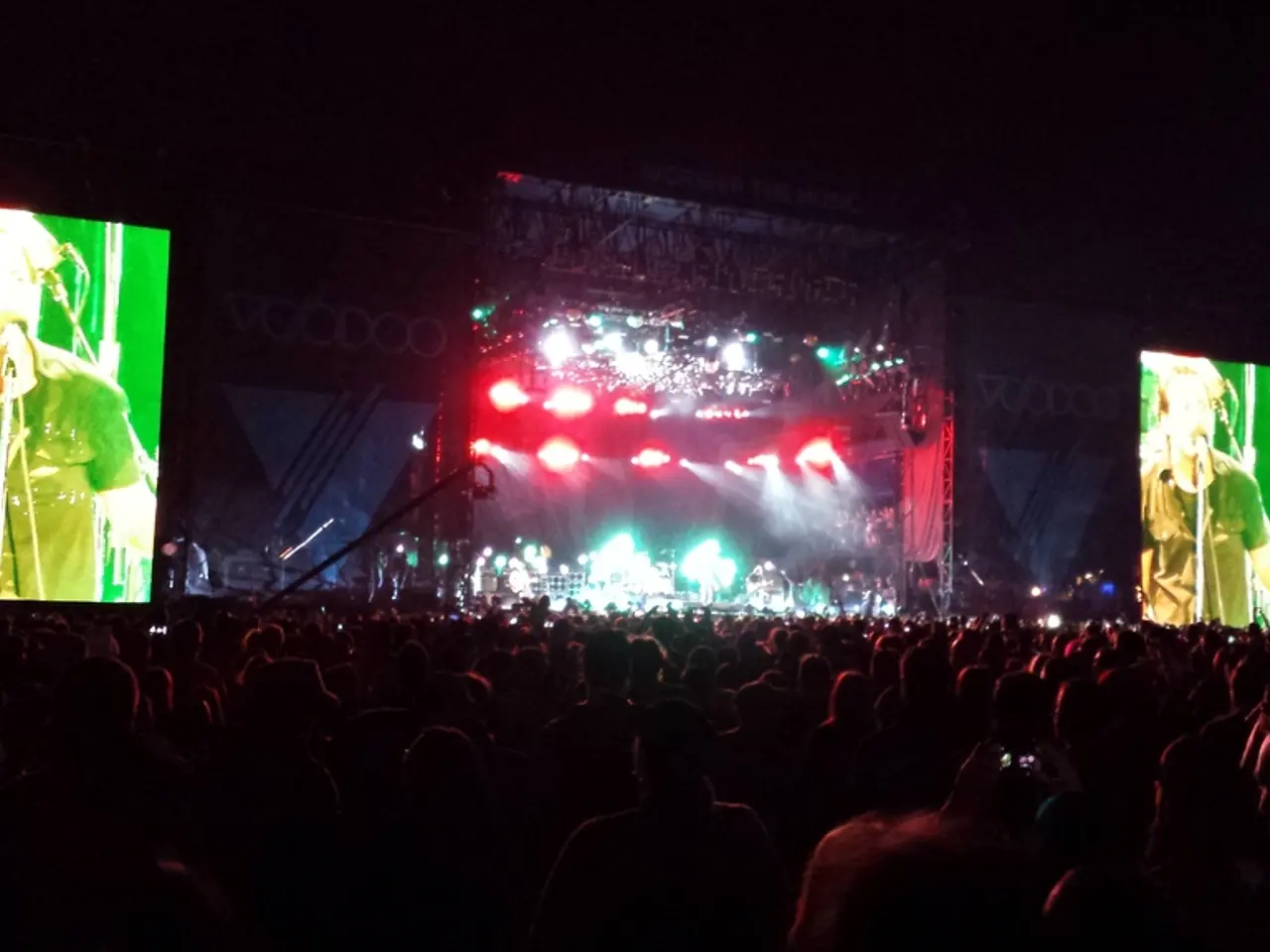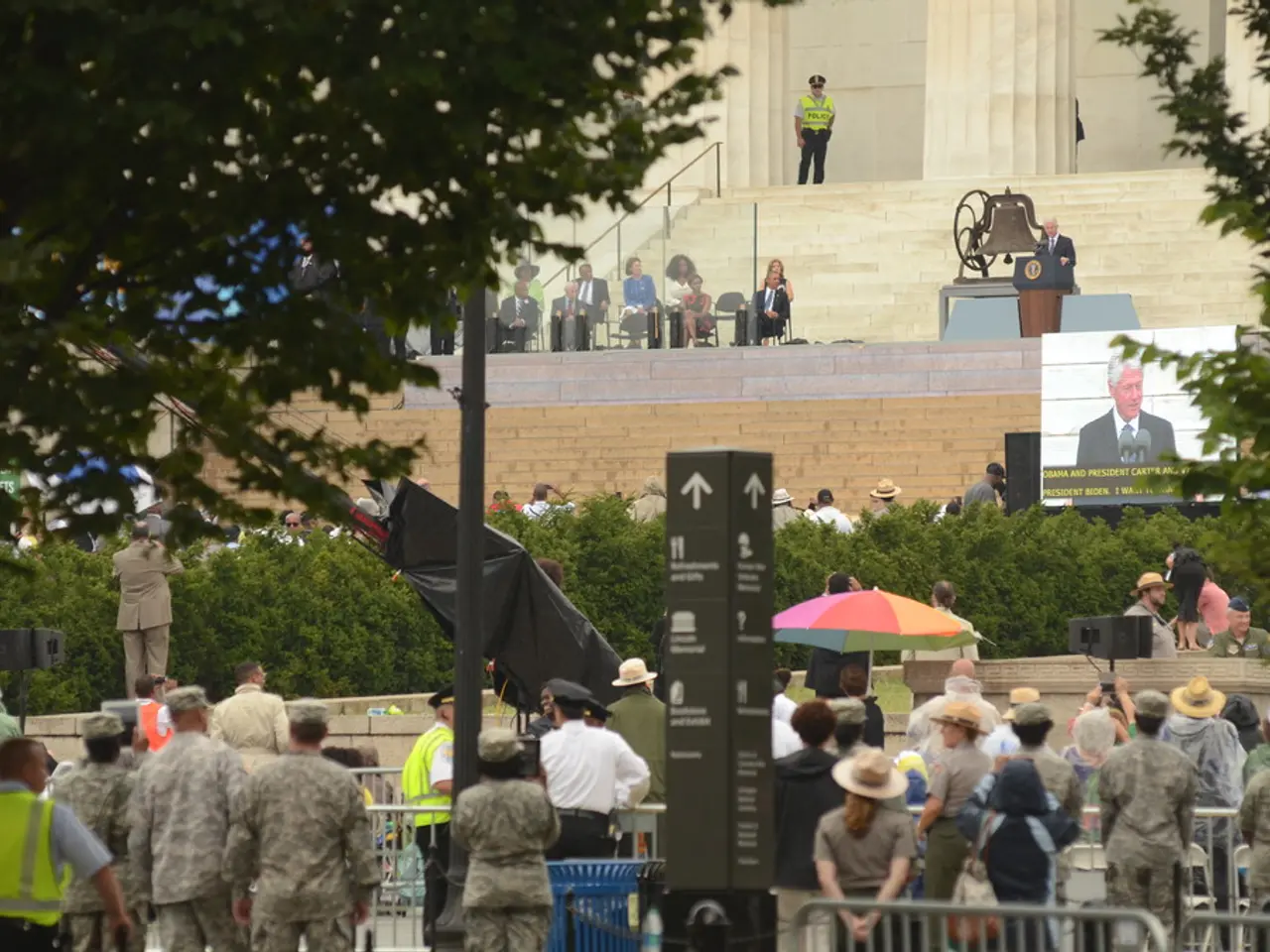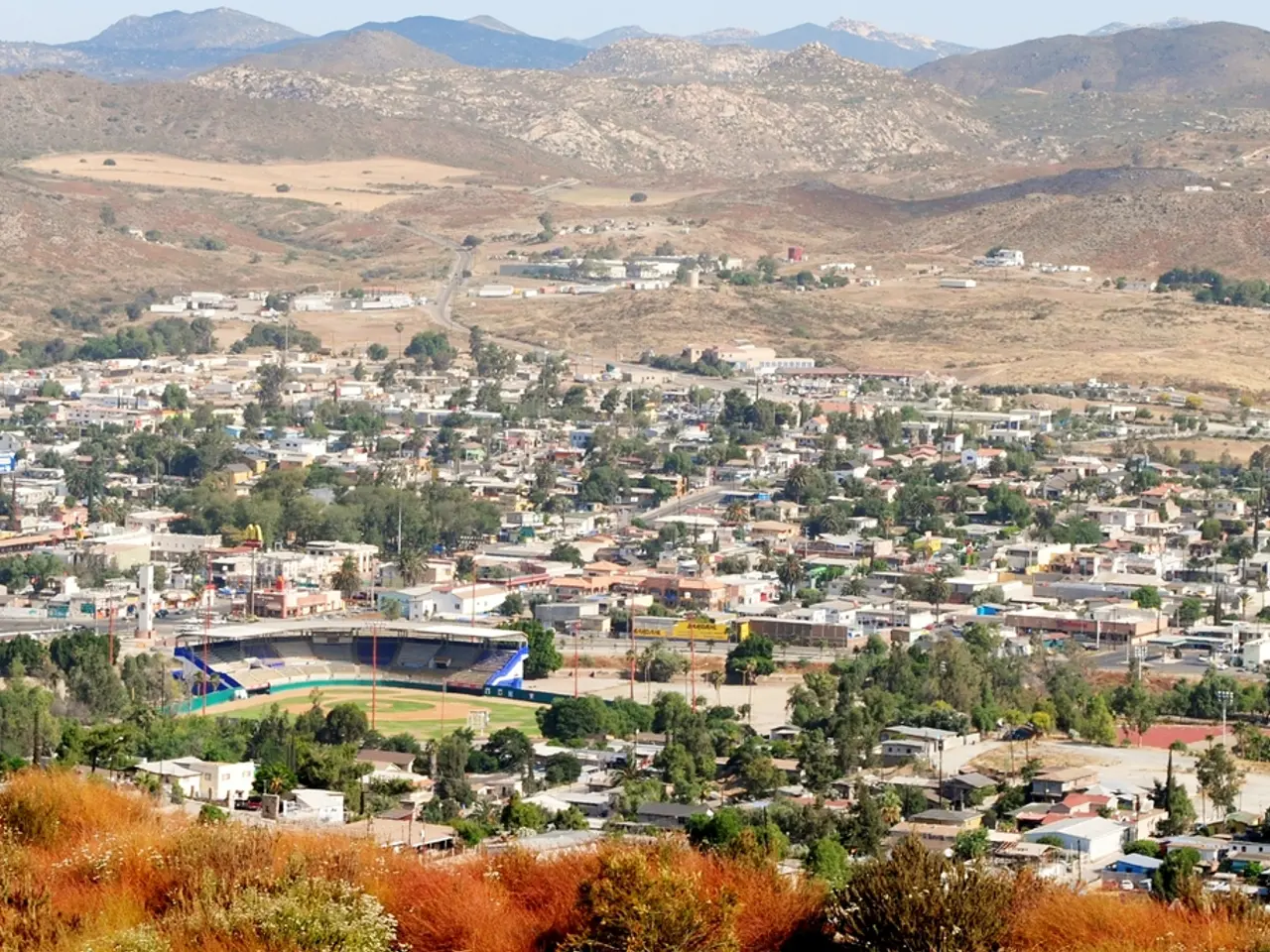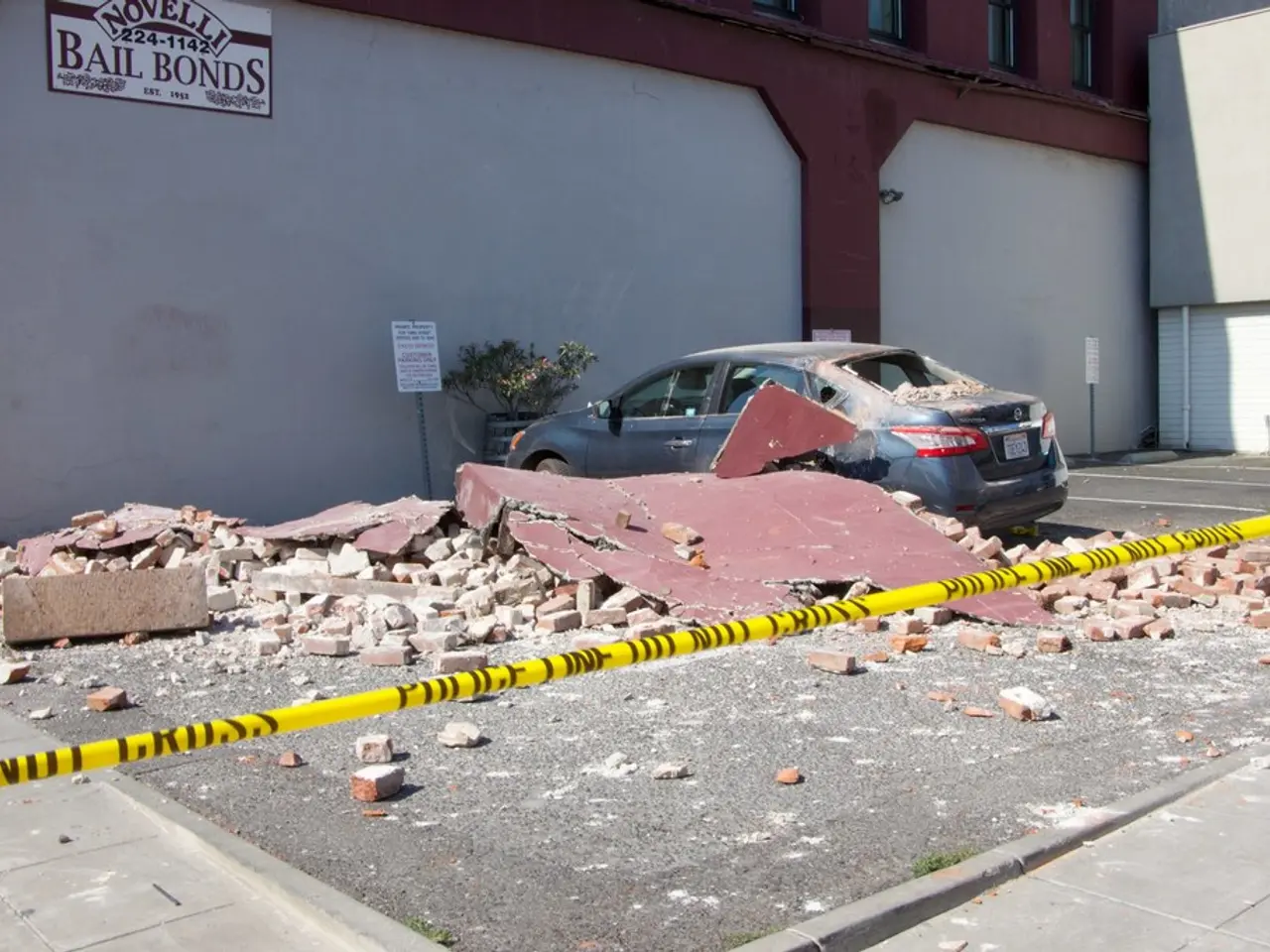In the "Crocus" case, the court recognized seven businesses, such as MTS and T2 Mobile, as victims of wrongdoing
Terrorist Attack at Krokus City Hall: A Tragic Night in March 2024
On the evening of March 22, 2024, the concert venue at Krokus City Hall in Krasnogorsk, just outside Moscow, Russia, was the scene of a horrific terrorist attack. The attack, which targeted a concert by the Russian rock band Piknik, resulted in a catastrophic loss of life and injury[1][2][3].
Here are the key details:
- Casualties: The attack resulted in 149 deaths and one person missing, with over 330 injured. The majority of the victims died from smoke and carbon monoxide inhalation due to a fire that engulfed part of the building[2][3][5].
- Perpetrators: The four main attackers were men from Tajikistan, a Central Asian republic. They were apprehended in Russia’s Bryansk region and brought to Moscow for trial[2][3][4][5].
- Motivation and Affiliations: The attack was prepared by members of Wilayat Khorasan, a branch linked to the Islamic State (IS) terrorist group, which is banned in Russia. The suspects were recruited via the internet targeting the Tajik diaspora from Afghanistan. Russian authorities blamed the attack on intelligence support from an "unfriendly state," implicating Ukraine, though Kyiv denied involvement[1][5].
- Damage: The direct damage to Crocus City Hall and associated property amounts to approximately 5.7 billion rubles[1][2][4].
- Investigation and Legal Process:
- The Second Western District Military Court in Moscow began hearing the case in August 2025 in a high-security setting, with some hearings held behind closed doors due to security concerns[2][3][4][5].
- The evidence dossier is extensive, with over 470 volumes and more than 200 expert examinations[4].
- Charges include committing a terrorist act by an organized group and illegal weapons trafficking by an organized group[1].
- Four accused terrorists remain in custody until at least November 22, 2025[1].
- Public Reaction and Broader Impact:
- The attack shocked Russia amid ongoing conflict with Ukraine.
- It triggered waves of xenophobia against Central Asian migrants within Russia[5].
Additional details include:
- The attackers opened fire with automatic weapons and set the building on fire, causing part of it to collapse[1][2][3].
- Some of the accused arrived in Russia from abroad, while others were already in the country and acquired weapons[1].
- "Video Land" provided video equipment for the concert, while "MTS" and "T2 Mobile" rented space for communication systems for the event[1].
- "Service Hall" rented the restaurant "Backstage" for the concert, and "MMS" and "S-Service" organized the concert[1].
- "Krokus International" is the owner of the building where the terrorist act occurred[1].
- A preliminary hearing was held on July 21 at the 2nd Western Circuit Military Court, and the trial is set to begin on August 4 at the Moscow City Court building[1].
- An episode of the case involves the preparation of an explosion at an entertainment center in Kaspiisk[1].
In summary, the Krokus City Hall attack was a deadly Islamist terrorist attack against a concert venue near Moscow, with 149 killed, largely by fire and smoke. The main perpetrators were Tajik nationals linked to IS via Wilayat Khorasan. The extensive investigation and evidence have led to a major trial underway in Moscow since mid-2025 involving 19 defendants, occurring under high security with significant public and political implications in Russia[1][2][3][4][5].
- The horrific terrorist attack at Krokus City Hall on March 22, 2024, has had far-reaching effects on the society and politics of Krasnogorsk and Russia, with war-and-conflicts, crime-and-justice, and general-news outlets extensively covering the incident and its aftermath.
- The trial related to the Krokus City Hall attack at the Second Western District Military Court in Moscow is a key piece of politics, with the involvement of Islamic State (IS) and allegations of intelligence support from unfriendly states, raising concerns about security, terrorism, and foreign relations within the society.






